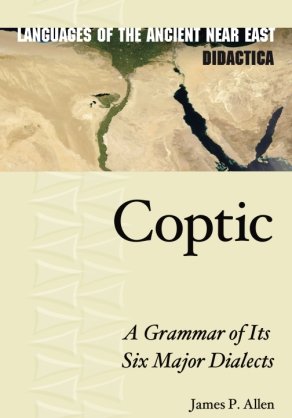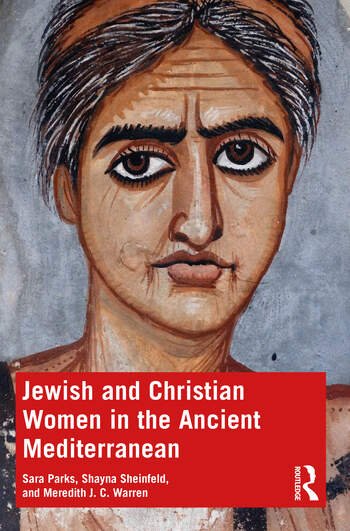Yarbro Collins’s goal in Paul Transformed is to capture the multiple images of Paul that early Christ-confessors created from reading the apostle’s letters.
Read MoreThe Forgotten Creed: Christianity’s Original Struggle against Bigotry, Slavery, and Sexism
Patterson’s reading seeks to reclaim an unrealized moral and ethical vision of a biblical passage that continues to be invoked today.
Read MoreJewish Law & Early Christian Identity: Betrothal, Marriage, & Infidelity in the Writings of Ephrem the Syrian
Monnickendam’s study wrestles with the complexity of Ephrem’s thought as well as the centrality of marriage imagery within his writings. While each chapter pulls readers into legal minutiae from across the ancient Mediterranean, she bookends her analysis with easy-to-follow summaries of her findings.
Read MoreWomen and the Polis: Public Honorific Inscriptions for Women in the Greek Cities from the Late Classical to the Roman Period
Women and the Polis is a welcomed addition to the scholarly conversation not only about ancient Greek benefactresses in particular but also about ancient Greek benefaction in general.
Read MoreCoptic: A Grammar of Its Six Major Dialects
By methodically reading through its chapters and working through its exercises and chrestomathy, a user of Allen’s grammar can rapidly increase their familiarity with a good amount of the variation found in Coptic texts, then have the book on hand as a quick initial resource for whatever they might happen to read afterwards.
Read MoreThe Secret Gospel of Mark: A Controversial Scholar, a Scandalous Gospel of Jesus, and the Fierce Debate Over Its Authenticity
Readers will learn a great deal from G. Smith and Landau about paleography, apocrypha, monasticism, the history of sexuality, and the strange academic environments in which all of these are explored: filled with curiosity, envy, ambition, and flashes of brilliance.
Read MoreSBL 2021 Review Panel: Bishops in Flight
AJR is pleased to publish remarks delivered as part of a book review panel at the annual meeting of the 2021 Society of Biblical Literature in San Antonio. The panel was organized by members of the Social History of Formative Christianity and Judaism, Exile (Forced Migrations) in Biblical Literature steering committees. The book is Bishops in Flight: Exile and Displacement in Late Antiquity (University of California Press, 2019) by Jennifer Barry and the panelists were: M Adryael Tong (ITC), Mark K. George (Iliff School of Theology), Matthew Larsen (University of Copenhagen), and Tina Shepardson (University of Tennessee Knoxville). The series begins with a book review of Bishops in Flight by Madeline St. Marie.
Bishops in Flight: Exile and Displacement in Late Antiquity
Bishops in Flight reminds us to look to how narratives arise in in the collective memory of a community.
Read MoreMaterials That Make Difference
The case of the Jewish catacombs exemplifies how scholars of the ancient world have long worked with undertheorized ideas about religious identities, religious communities, and the relationship between material culture and lived religion, among other things.
Read MoreThe Early Modern Invention of Late Antique Rome
Denzey Lewis poses the provocative question: how did Rome become holy? The answer, as we see by the end of this book, lies mainly in the logic behind the compilation of the sources rather than in the sources per se.
Read MoreRereading Reading Renunciation
Hell Hath No Fury: Gender, Disability, and the Invention of Damned Bodies in Early Christian Literature
Building upon scholarship that sees juridical contexts at the heart of these conceptions of punishment and just desserts, Henning pushes such conclusions further by asking what other assumptions, namely concerning bodies and gender, are brought into our scholarly interpretations of Hell and the afterlife.
Read MoreDivine Accounting: Theo-Economics in Early Christianity
In Divine Accounting, Quigley contends that the modern categories of “theology” and “economics” were not separate in antiquity but intertwined.
Read MoreLiterary Theory and the New Testament
Throughout Literary Theory and the New Testament, Dinkler builds a persuasive case for the contributions literary theory continues to make to the field of New Testament studies.
Read MoreThe Journey of Christianity to India in Late Antiquity: Networks and the Movement of Culture
The Journey of Christianity to India in Late Antiquity is a compelling take on how some Christians imagined an interconnected late ancient world.
Read MoreJewish and Christian Women in the Ancient Mediterranean
The authors explore in detail the roles women played, attending to commonalities and particularities of “Jew and Gentile” women. From the very beginning, the authors take great care to guide those who will teach from this textbook, and they are explicit about the book’s scope and limitations. Readers will find not only a useful primer for studying gender within ancient texts, but also, a detailed account of the various ways in which readers and students themselves interpret these texts.
Read MoreThe Spirit within Me: Self and Agency in Ancient Israel and Second Temple Judaism
“In this innovative and deeply engaging study, Newsom sparks new ways of thinking about models of moral agency in biblical and early Jewish literature and paves the way for a broader application of the analysis that considers Jewish literature composed in Greek or the literature of other cultures.”
Read MoreThe Politics of Roman Memory: From the Fall of the Western Empire to the Age of Justinian
What did being Roman mean after 476? And how did the notion that the Roman empire could fall shape political rhetoric in the east?
Read MoreThe Narrative Shape of Emotion in the Preaching of John Chrysostom
Weaving together studies of emotion, homiletics, and biblical exegesis, this work offers an important analysis of a recurrent theme in Chrysostom’s preaching.
Read MoreMemory in a Time of Prose
By focusing on known dynamics of memory and archaeological evidence, Pioske brings together sometimes-disparate methodological considerations to make a persuasive case for how one might engage in a historically and theoretically responsible way with the knowledge claims made in early Hebrew texts.
Read More
























